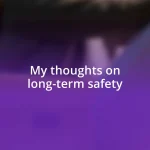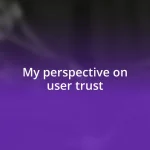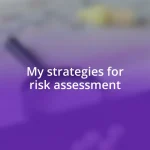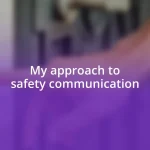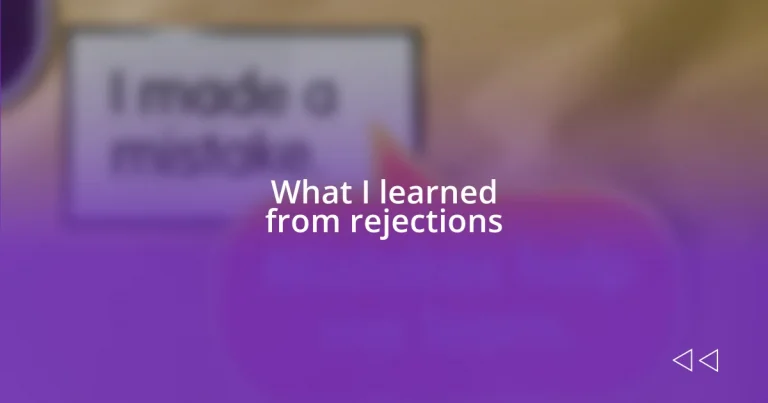Key takeaways:
- Rejection can serve as a catalyst for growth, encouraging self-reflection and resilience in the face of setbacks.
- Transforming rejection into opportunity involves shifting one’s mindset and viewing rejections as learning experiences rather than personal failures.
- Building a supportive network and engaging in creative expression can help process emotions constructively after experiencing rejection.
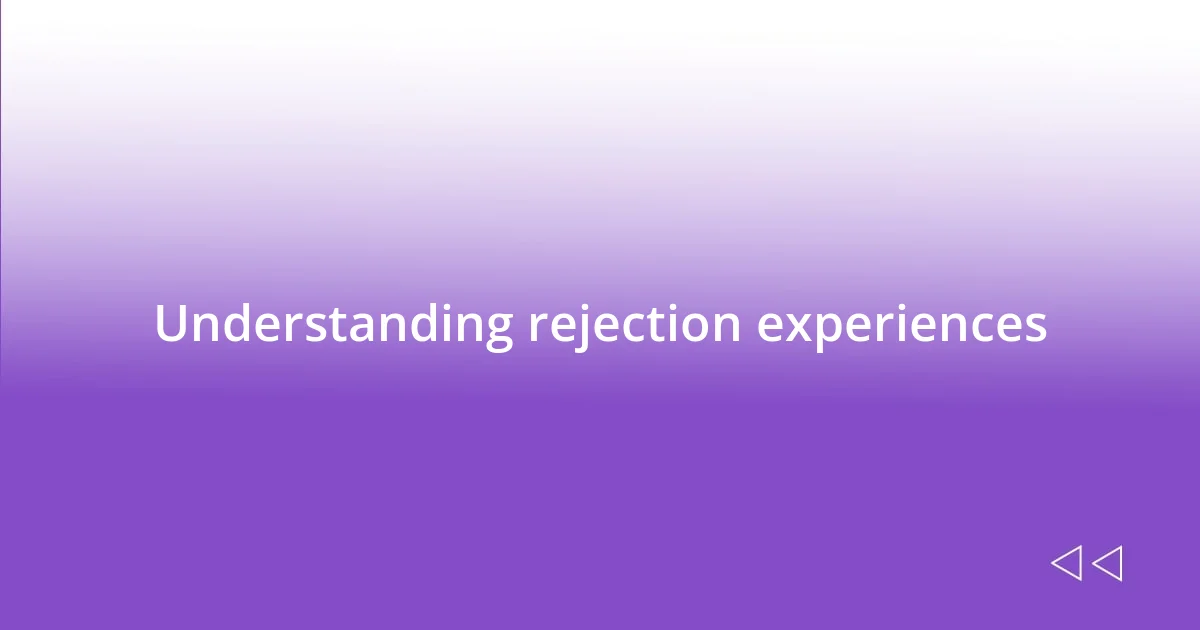
Understanding rejection experiences
Rejection is often more than just a “no”; it digs into our sense of self-worth. I remember submitting my first manuscript, brimming with excitement, only to receive a form rejection letter. It felt like a punch to the gut, leaving me to wonder, “Was my writing really that bad?” This emotional turmoil is common and can be a turning point in how we perceive our creative journey.
When I reflect on those moments, I realize rejection provided an unexpected clarity. Each “no” nudged me to refine my craft and seek constructive feedback, pushing me out of my comfort zone. Have you ever felt that bittersweet urge to improve after a setback? I found myself pouring over critiques, transforming the sting of rejection into a stepping stone for growth.
It’s fascinating how rejection can create a space for resilience. It forces us to confront vulnerabilities and confront our fears head-on. I recall a time when I faced rejection in a job application—it stung, yes, but the introspection that followed spurred me to seek roles that truly resonated with my passions. Isn’t it interesting how those painful experiences often lead to personal revelations we couldn’t have anticipated?
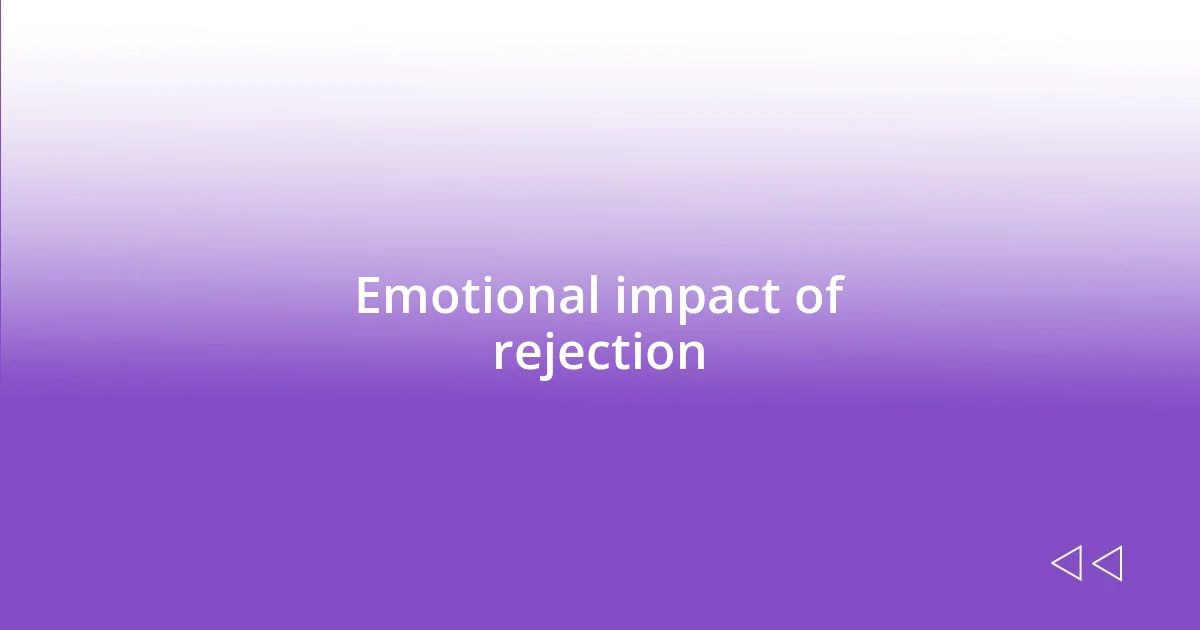
Emotional impact of rejection
Rejection can stir a whirlwind of emotions, leaving us feeling dejected and questioning our worth. I vividly recall a follow-up to a rejection email where I had poured my heart into every word. The disappointment felt like a heavy weight on my chest, a reminder that sometimes, despite our best efforts, we’re not always aligned with what others seek. These feelings, while painful, highlight the powerful connection between our self-esteem and external validation.
Interestingly, the emotional fallout from rejection often leads to valuable lessons. Here are a few insights that I’ve gathered over the years:
- Self-Reflection: I’ve learned to ask myself what I can improve rather than internalizing rejection as a personal flaw.
- Empathy Development: Experiencing rejection has deepened my understanding of others’ struggles, making me more compassionate.
- Resilience Building: Each rejection has shown me how to bounce back stronger, reminding me that success isn’t linear.
- Strengthened Goals: It’s pushed me to clarify what I truly want, rather than simply chasing opportunities for validation.
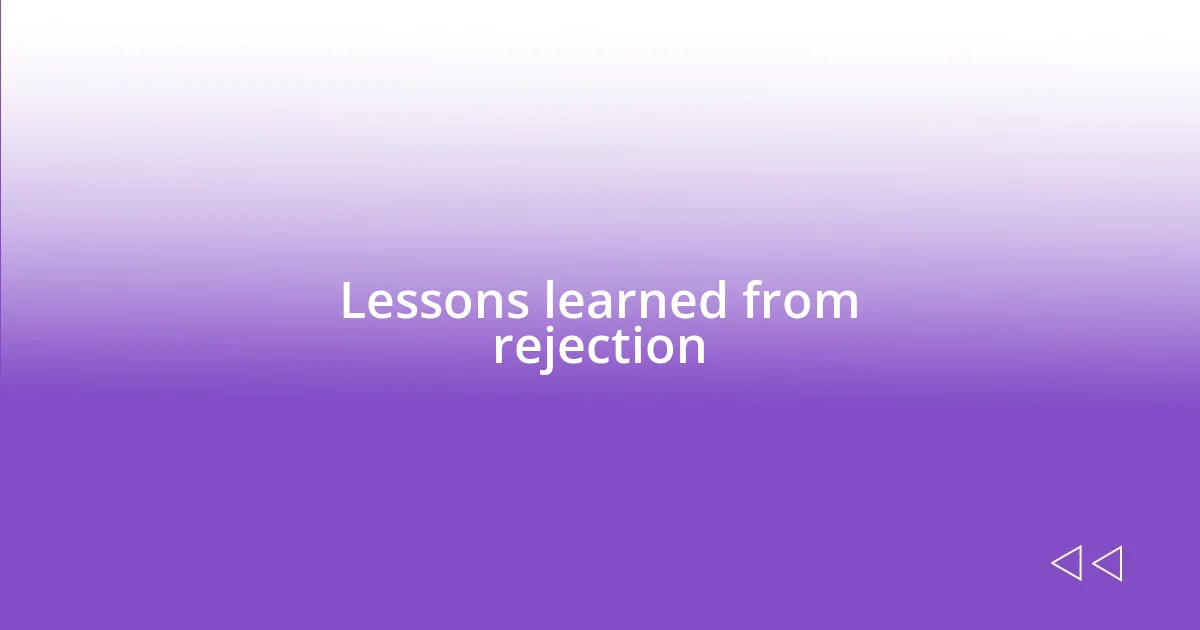
Lessons learned from rejection
Rejection has taught me the significance of perseverance. For instance, after several attempts to pitch articles to magazines, I started to view rejections not as failures but as steps towards refinement. I remember one particular magazine that turned me down multiple times—ultimately, my persistence paid off when I finally penned an article that resonated with their audience.
One of the most profound lessons I’ve learned is the art of detachment. In the beginning, I took rejections too personally, often spiraling into negative thoughts. However, I learned that a rejection often reflects the specific tastes and needs of others. By separating my identity from my work, I became more resilient. It’s almost liberating to think, “This piece just wasn’t the right fit.” Have you ever shifted your perspective in a similar situation? Realizing that art is subjective opened up new avenues for me.
Ultimately, I discovered that rejection can also lead to unexpected opportunities. Once, after facing a set of rejections from freelance gigs, I stumbled upon an invitation to collaborate on a community project. The experience not only rekindled my passion but also broadened my network. This taught me to view rejection as a redirection, guiding me towards paths I hadn’t considered before.
| Lessons Learned | Personal Insights |
|---|---|
| Perseverance | Rejections as refinement steps |
| Detachment | Separating self-worth from work |
| Opportunities | Rejection can guide to new paths |
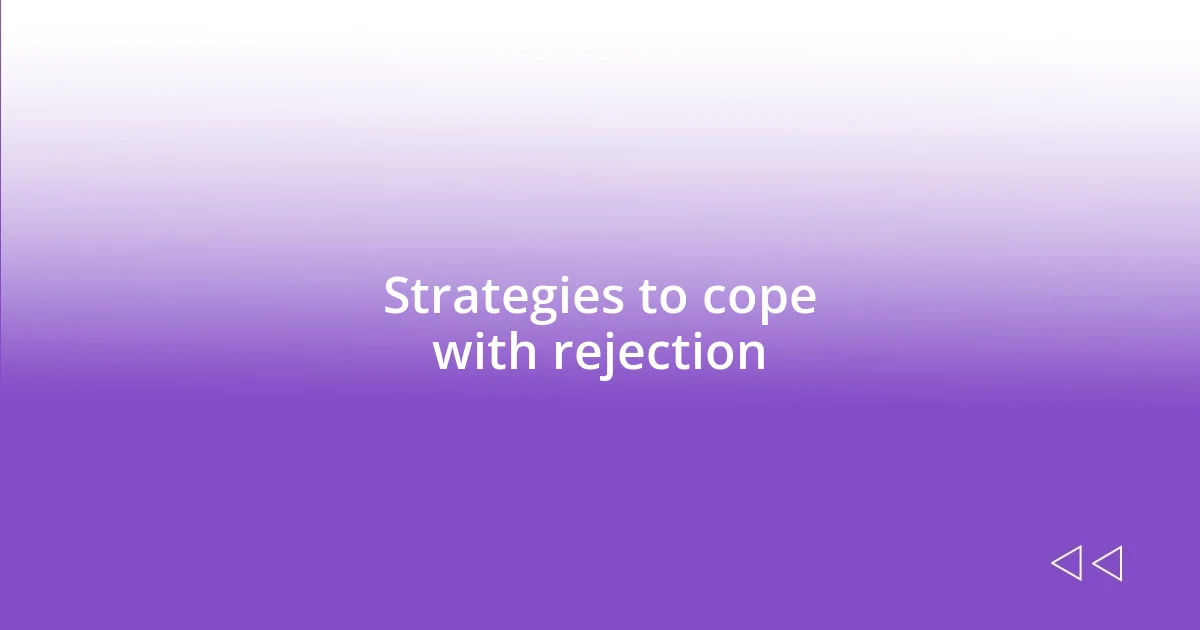
Strategies to cope with rejection
When it comes to coping with rejection, one strategy that has truly resonated with me is the power of reframing. I remember a time when I received a rejection letter after a job interview I had really hoped to ace. At first, it felt like a devastating blow. But after some reflection, I started to view it as a chance to grow and refine my interview skills. What if that rejection was telling me that there was a better opportunity ahead? This shift in mindset allowed me to approach future situations with renewed confidence.
Another effective strategy is surrounding myself with supportive people. After facing rejection, I often turned to friends who understood my journey. They offered encouragement and reminded me of my strengths. It’s amazing how a small pep talk can change your perspective. Have you ever confided in a friend about a rejection and felt relief just from sharing? It made me realize that connection plays a huge role in our ability to bounce back.
Finally, I’ve discovered the importance of processing emotions constructively through creative outlets. After a particularly tough rejection, I took up journaling. Pouring my feelings onto the page was incredibly therapeutic; it provided a safe space for reflection and healing. Have you ever tried writing down your thoughts after a setback? For me, it’s a way to convert pain into understanding, ultimately leading to clarity rather than despair. Each of these strategies has enriched my experience with rejection and helped me move forward with resilience.
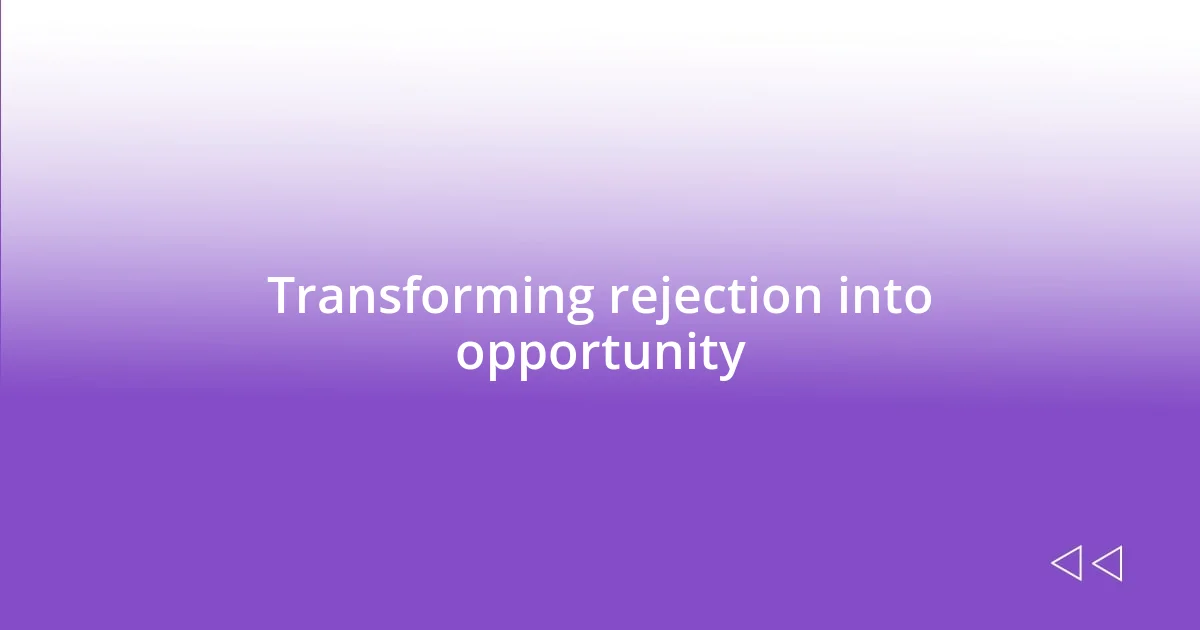
Transforming rejection into opportunity
Transforming rejection into opportunity requires a shift in mindset. I recall a time when I was turned down for an important publishing opportunity. Initially, it felt like a door slammed shut in my face, but then I remembered that this could open another door. Just weeks later, I received an unexpected email from a different publisher who had seen my previous work online. They were interested in a collaboration! That rejection led me to a creative path I hadn’t even considered.
Embracing a perspective of growth is crucial. After facing multiple rejections, I started keeping a journal specifically dedicated to my setbacks. Each entry became a reflection of not just what went wrong, but what I could learn from the experience. What could I have done differently? Suddenly, rejection transformed into a classroom where I was the pupil, learning valuable lessons. This practice not only encouraged self-improvement but also sparked ideas for future projects that exceeded my expectations.
The emotional weight of rejection can also lead us to explore new avenues we hadn’t thought possible. One day, feeling particularly disheartened after a string of no’s, I decided to enroll in a local writing workshop. What started as an attempt to regroup became a transformative experience where I met like-minded individuals. Through our shared experiences, we fostered a sense of community that reignited my passion for writing. Isn’t it amazing how a setback can inspire us to seek out unexpected connections and opportunities?
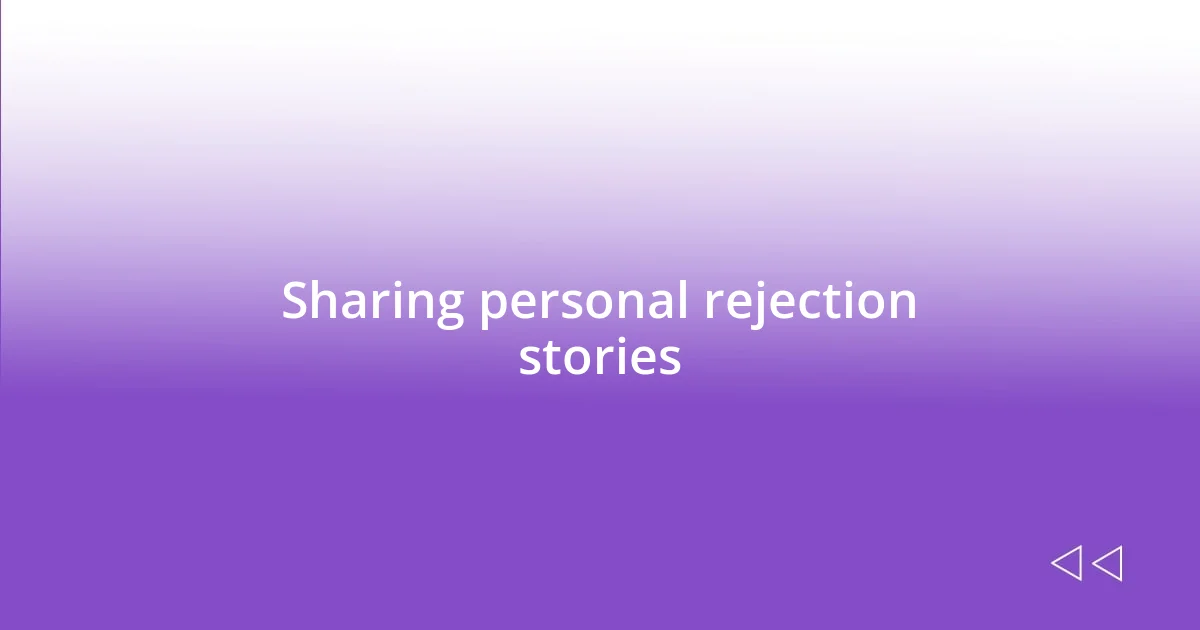
Sharing personal rejection stories
I remember vividly one instance where I faced rejection after submitting a piece to a well-known magazine. I was so proud of my work, only to later find an email that felt more like a paper cut than just a “thanks, but no thanks.” At that moment, I was crushed and questioned my entire writing ability. But reflecting on it later, I realized this rejection pushed me to dig deeper and improve my craft; it became a catalyst for growth rather than just an endpoint.
Another time, I poured my heart into a project that I thought would be groundbreaking. When seeking feedback, the response was lukewarm at best, and I felt a wave of disappointment wash over me. In that emotional turmoil, I found myself considering: Why is it that we often attach our self-worth to others’ approval? I learned that rejection is merely a reflection of someone else’s perspective, not an indictment of my talent. That realization allowed me to engage with critiques more constructively and embrace the journey without being so tied to external validation.
There was also a period when numerous auditions for acting roles culminated in a series of rejections. I remember sharing my frustration with a mentor, questioning if I was cut out for this field at all. Instead of letting me wallow in self-doubt, they reminded me that every successful actor has faced countless rejections. That conversation opened my eyes to the importance of resilience and tenacity. With each rejection, I learned not just about my craft, but about myself—strengthened by the belief that persistence pays off in unforeseen ways. Have you ever found strength in your own rejection stories?
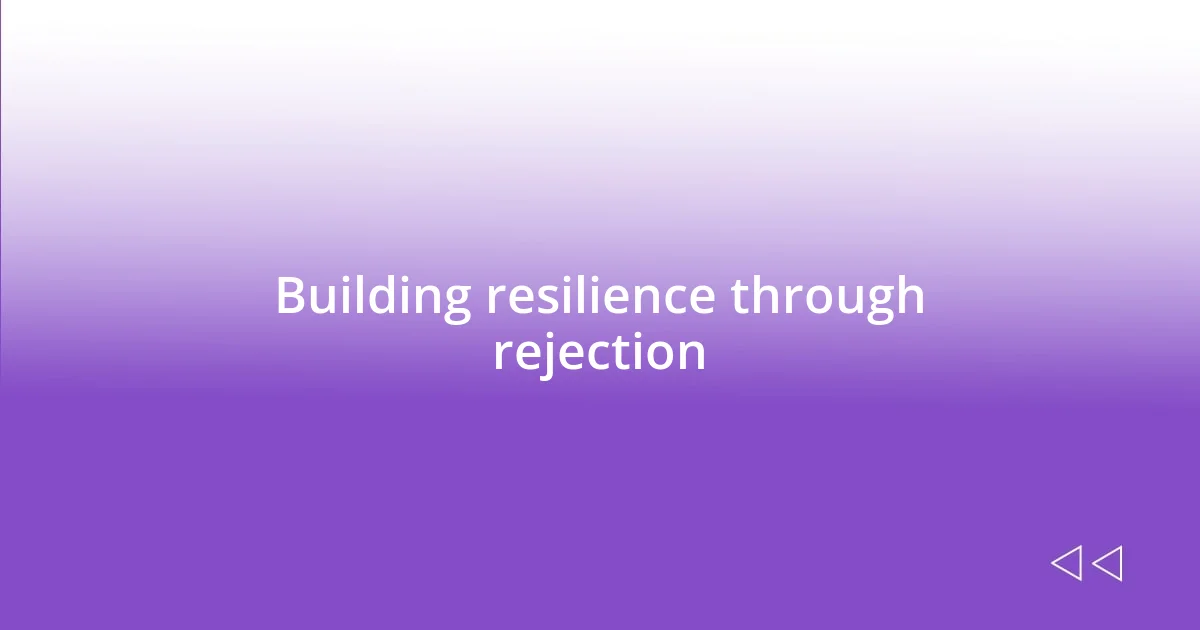
Building resilience through rejection
Building resilience through rejection has been a transformative experience for me. There was a time when a freelance project I had my heart set on fell through, leaving me feeling defeated. Instead of staying in that negative space, I channeled my energy into creating a new portfolio piece. This shift not only boosted my confidence but also taught me that setbacks can act as a springboard for innovation.
During another challenging time, I faced repeated rejections after applying for a writing residency. It was frustrating, and I often found myself wondering if I was even cut out for the writing world. Then, one evening while brainstorming, I realized that those rejections pushed me to refine my style and submit to even better opportunities. I wouldn’t have discovered my unique voice if it weren’t for that tough love from the universe—it was almost like the rejections were nudging me toward greater things.
As I reflect on my journey, I can’t help but appreciate the emotional layers that rejections add. Every rejection I’ve faced felt like a bruise at first, but with each one, I learned to build emotional fortitude. I began asking myself, “What does this teach me?” This perspective shift transformed rejection from a bitter pill to a learning opportunity. Isn’t it fascinating how rejection can serve as a mirror, revealing not only our weaknesses but also our untapped potential? Each experience became a stepping stone, reminding me that resilience is a powerful tool—one that we can cultivate with every setback we encounter.



